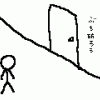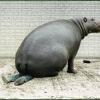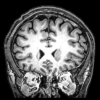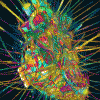I´m actually trying the bupleurum.
I got it on Monday and will take it today again.
I tend to wait a week or so before reporting the effects, bcause some, like Chinese skullcap, worked just the first 3-5- days then dimmished.
Untill now ~45min after usage I felt good, but it went negative and stabilized more or less to baseline,
but it seems to have a positive effect the next day after as well as today.
This one contains also Bupleurum, perhaps it could be interresting for You.
Seee the comments:
Planetary Herbals Bupleurum Calmative Compound, 550 mg
I have been trying everything under the sun to combat my extreme anxiety and depression. I was on Paxil for three years and it pretty much ruined my life. I was comatose and had zero motivation. I went from a person who worked out at least three hours a day to a fat, lazy slob who stopped showering. After It got bad my family/friends begged me to get off it and I did. The result was hell. I was so depressed and had so much anxiety I couldn't leave the house. I then started buying everything natural I could. I have tried: SAM-e, inositol, passion flower, ginseng, B-complex, Valerian root, EXPENSIVE/Gross kava kava root powder, omega-3,and L-Tryptophan... plus lots more I cant remember. None did anything positive and some like the kava and SAM-e made me really sick.
The very first day I took these was the same day I went through a horrible fight with my neighbor. Normally this would have stressed me out so much I wouldn't be able to sleep, but an hour after I took these I was able to sleep. Ever since I started taking these I have had substantially less anxiety. Normally I am a recluse but today I booked a weekend trip to the beach, something I haven't wanted to do for years. I feel like my self but not as cranky and high strung as I have been. I will say i am a strict vegan, I meditate daily and I workout a lot so this does all aid in feeling better but It wasn't enough.If you have tried other stuff with zero success you should consider this cause it does help.
Please note you must take these on an empty stomach. If you take these with food you really will only feel 20% better.
http://www.amazon.co...*=1&*entries*=0
Please consider to take the time to read into the following.
Because they could help perhaps My and Yours Depression/Mood diesease:
I found a researchpaper where they stated interresting conclusions about the decreased gene expression of Glucocorticoids and thus rise in depression.
Its not only HDAC6 but also the gene methylation and other mechanisms
Unfortunaetly I cant remeber where I get the Full text even the link posted above doesnt work.
(Theres also a table, I will try to post it in the next days)
Anyway its:
Some rats have more
contact with their offspring, exhibiting high levels of pup
licking, grooming, and arched-back nursing (high LG-ABN),
whereas others exhibit these behaviors to a significantly
lesser degree (low LG-ABN). When the pups of high LGABN
rats were compared with the pups of low-LG-ABN rats,
the former group was observed to experience less anxiety as
adults and their HPA response to stress was lower (Liu et al.
1997; Caldji et al. 1998). When the pups born to low-LGABN
mothers were reared by high-LG-ABN mothers, their
development was reported to be similar to that of the pups
born to high-LG-ABN mothers. Likewise, pups born to high
LG-ABN mothers that were reared by low-LG-ABN mothers
exhibited development similar to that observed in the pups
born to low-LG-ABN mothers (Francis et al. 1999). These
findings suggest that the effects of maternal behavior on anxiety
are mediated by non-hereditary factors.
Since it became clear that epigenetic processes regulate genes
dynamically in adults, studies focused on the epigenetic
changes in genes critical to mood disorders that are induced
by stressful life events during different periods of life. The
majority of such studies targeted molecules involved in the
regulation of the HPA axis. Among the molecules studied
are the glucocorticoid receptor (GR) gene, which regulates
the HPA axis via negative feedback inhibition, and arginine
vasopressin (AVP) and corticotrophin releasing factor (CRF)
genes, which regulate the effect of stress on the HPA axis by
increasing the release of ACTH from the pituitary gland.
Glucocorticoid Receptor (GR) Gene
It has been reported that prenatal stress and early life stress
increase DNA methylation of the GR gene promoter, and decrease
GR expression in the hippocampus and hypothalamus
(Weaver et al. 2004, 2005; Mueller and Bale 2008) (Table 2).
In rat pups born to low-LG-ABN mothers and reared by high-
LG-ABN mothers, such change in GR methylation was not
observed. Interestingly, it was reported that administration of
an HDAC inhibitor, trichostatin A, increased GR levels in
the pups of low-LG-ABN mothers (Weaver et al. 2004). The
same group investigated the effects of systemic administration
of L-methionine (a methyl donor) in adult rats on methylation
of the GR gene and GR levels in the hippocampus, and
behavior in pups born to high- or low- LG-ABN mothers.
This intervention increased DNA methylation in GR promoter
and decreased GR levels in the hippocampus of the
pups born to high-LG-ABN mothers, and increased depression-
like behavior. A significant difference was not observed
between the pups of low-LG-ABN mothers that were administered
L-methionine and vehicle (Weaver et al. 2005) (Table
2). These findings are extremely important because they show
that epigenetic changes that occur early in life can be modified
in adulthood and therefore, changes in gene expression
engendered by negative factors via epigenetic mechanisms
may be reversed by treatment interventions in adulthood and
new treatments may be developed in this context.
Psychiatric disorders and epigenetics.
http://www.ncbi.nlm....pubmed/22648875
Another very interresting one expalins by which mechanism Mifepristone works + the role of HDAC
:http://www.ncbi.nlm....pubmed/21367534
Glucocorticoid-induced p11 over-expression and chromatin remodeling..
In addition, chronic social defeat stress in mice causes a tran-
sient decrease, followed by a persistent increase, in levels of acet-
ylated histone H3 in the nucleus accumbens, an important limbic
brain region. Such an increase in H3 acetylation is associated with
decreased levels of histone deacetylase 2 (HDAC2). Similar effects
were observed in the nucleus accumbens of depressed humans
studied postmortem. Infusion of HDAC inhibitors into the nucleus
accumbens, which increases histone acetylation, exerts robust
antidepressant-like effects in the social defeat paradigm and other
behavioral assays. HDAC inhibitor [N-(2-aminophenyl)-4-[N-(pyri-
dine-3-ylmethoxy-carbonyl)aminomethyl]benzamide (MS-275)]
infusion also reverses the effects of chronic defeat stress on global
patterns of gene expression in the nucleus accumbens
[41]
. These
findings provide new insight into the underlying molecular mech-
anisms of depression and antidepressant action, and support the
antidepressant potential of HDAC inhibitors and perhaps other
agents that act at the level of chromatin structure.
A further article explains what epigenetic target is responsible for what :
Epigenetic Modulation Mechanisms in Psychiatric Disorders: Gene and Trigger and Erase and Re-write Hypothesis
http://www.rjpbcs.co...3_4(4)/[35].pdf
And this one could show which chinese herbs do alter epigenetic modifications
Histone modifications and traditional Chinese medicinals
http://www.ncbi.nlm....les/PMC3698099/
Edited by Flex, 05 November 2014 - 08:45 PM.



















































